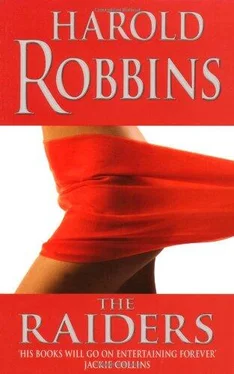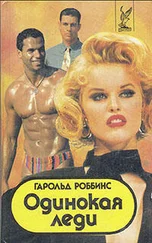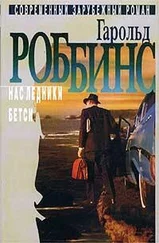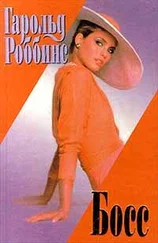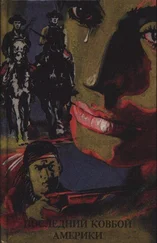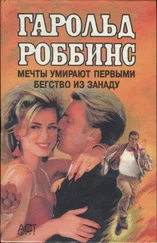Гарольд Роббинс - The Raiders
Здесь есть возможность читать онлайн «Гарольд Роббинс - The Raiders» весь текст электронной книги совершенно бесплатно (целиком полную версию без сокращений). В некоторых случаях можно слушать аудио, скачать через торрент в формате fb2 и присутствует краткое содержание. Жанр: Современная проза, на английском языке. Описание произведения, (предисловие) а так же отзывы посетителей доступны на портале библиотеки ЛибКат.
- Название:The Raiders
- Автор:
- Жанр:
- Год:неизвестен
- ISBN:нет данных
- Рейтинг книги:3 / 5. Голосов: 1
-
Избранное:Добавить в избранное
- Отзывы:
-
Ваша оценка:
- 60
- 1
- 2
- 3
- 4
- 5
The Raiders: краткое содержание, описание и аннотация
Предлагаем к чтению аннотацию, описание, краткое содержание или предисловие (зависит от того, что написал сам автор книги «The Raiders»). Если вы не нашли необходимую информацию о книге — напишите в комментариях, мы постараемся отыскать её.
The Raiders — читать онлайн бесплатно полную книгу (весь текст) целиком
Ниже представлен текст книги, разбитый по страницам. Система сохранения места последней прочитанной страницы, позволяет с удобством читать онлайн бесплатно книгу «The Raiders», без необходимости каждый раз заново искать на чём Вы остановились. Поставьте закладку, и сможете в любой момент перейти на страницу, на которой закончили чтение.
Интервал:
Закладка:
He was a hero. It was a fine thing to be a hero. He enjoyed it.
3
The next year, 1936, he did not return to the grammar school in Cordoba. Instead, he and his mother went to live in Mexico City, in a flat maintained by Virgilio Escalante for his convenience in his frequent visits to the capital. The family had used its considerable political and economic influence to secure a place for Jonas at La Escuela Diplomatica, an international school for the children of diplomats. There he would study with Europeans and improve his English and learn French and German.
He learned something else: that Mexico was not one of the world's great nations, not in wealth, not in military might, not in cultural achievement and influence. No. The Estados Unidos to the north was all these things. Mexico was not. Mexico was a respectable nation but not a leader of the world. At the grammar school in Cordoba the teachers had taught otherwise.
His mother smiled when he asked her about this. The nuns had never taught her, she said, that Cuba was one of the great nations. They had taught her that Spain was the greatest nation of the world, with the world's supreme culture, admired and envied by everyone. The poor silly women had believed it, she said. And the teachers at Cordoba had believed what they taught.
At La Escuela Diplomatica it meant nothing that he was the illegitimate son of Jonas Cord, nothing that he was the grandson of Don Pedro Escalante. No one there had ever heard of either of them. He was Jonas Enrique Raul Cord y Batista, and all that counted was that his family had enough money to pay his tuition — that and the fact that he was bright enough to meet the challenge of a singularly demanding school.
During his first year at the school he lived at home in the Escalante apartment. In 1938, when he was twelve and no longer in the grammar-school department, he moved into the boys' dormitory.
The boys lived two to a room. His roommate was Maurice Raynal, a boy one year older than he was, who was supposed to act as a sort of mentor in the realities of school life. Maurice was the son of the naval attaché at the French embassy. Though a year older, he was no bigger than Jonas, who was tall and muscular with a man's voice, no longer a child in any sense.
Maurice's Spanish and English were heavily accented, as for that matter was his German. The teachers were constantly at him about it. The teachers asked Jonas to help him. They suggested that the two boys speak only English and Spanish in their room. Jonas was happy to do that, especially the English. The more he spoke English, the better.
Maurice complained that Jonas did not speak English the same as their English teacher. Eventually he understood. " Ah, Jonas, c'est Americain ! Ce n'est pas Anglais ! Vous parlez Americain !"
Jonas could not have been happier. He was not English. His father was not English. He wanted to speak his father's language, and his father spoke American.
Maurice was the source of a problem, and also of an education. He took off his clothes when they were alone in their room and the door was bolted. He walked around naked. Jonas never did. Usually when he did it, Maurice had an erection. Jonas was mature enough to know what that was.
And then one evening Maurice lifted his penis in his hand and asked, " Dites-moi, mon ami. Est le votre si grand ?"
Jonas glanced casually at the stiff organ. " Oui ," he said. " Plus grand ."
" Vraiment? Me montrez ."
Jonas considered for a moment, then stood and unbuttoned his pants and pulled out his own penis. " Voila ," he said. " Assez grand ?"
Maurice grinned and nodded. " C'est beau ."
Jonas stuffed his back in, buttoned his pants, and turned his attention to a problem in plane geometry.
He had supposed what Maurice had in mind was a competition. That was not what Maurice had in mind at all. The next evening he asked Jonas if he ever had wet dreams. Jonas admitted that he did.
Maurice spoke English. "A pleasure, no? But you need not wait for that pleasure. You can make it happen."
That was an interesting idea. Jonas had guessed as much but had not experimented.
Maurice saw he was interested. "I will show you how," he said solemnly, and he proceeded to masturbate, casting his ejaculate into a handkerchief. "See? Shall I do it for you?"
"I will do it for myself," said Jonas.
"Do. Let's see how much time you need."
Aroused, Jonas did what Maurice suggested, wetting his own handkerchief.
"It is good, no?" Maurice asked. "It is better when we do it for each other — at the same time."
The next evening Jonas consented. The two boys stretched out naked on Maurice's narrow bed. They rubbed their penises together until both of them were on the verge of their orgasms; then, cued by Maurice's urgent cry, they grabbed at each other and finished with their hands.
What followed was inevitable. He would learn not long afterward that there were ugly names for boys who did what he and Maurice did, and he never did it again, but he would never hate the memory of Maurice Raynal.
4
During the summer of 1939 many embassies called their staffs home. Maurice Raynal wrote Jonas a letter from Paris, saying he would not be returning to La Escuela for the fall term. His father had been called home and was serving as first officer aboard a French cruiser.
Jonas wrote Maurice that he would not return to the school either. His mother and stepfather and grandfather had anticipated what would happen: that the school would lose three-quarters of its European students and would replace them with students who would not have been admitted before, from Latin American nations. It would make the school provincial — exactly what they did not want. His family had enrolled him in a school in the United States, Culver Military Academy in Indiana. Maurice should write him there, he said.
Jonas never heard from or of Maurice Raynal again.
Culver Military Academy was a difficult school, and not one that he liked. He was lonely there. The climate was cold. The norteamericanos were cold. He found it difficult to make friends. He learned to introduce himself simply as Jonas Cord, a name that sounded yanqui and saved him from the contempt most of the boys felt for Mexicans. A few knew the name Jonas Cord. They did not guess, fortunately, that he was an illegitimate son. He wore a uniform and learned to stand at attention and march. He did well academically. If he won any reputation at all, it was for his marksmanship. He won medals on the rifle range. Even so, he did not like Culver and did not enjoy his three years there.
The school had, just the same, a major impact on his life. His English became more American. He studied more of science and mathematics, less of languages, and so made up a deficiency in his education. He acquired a lasting distaste for military organization and discipline, yet a credential in them that would serve him well.
He learned that the relationship he'd had with Maurice was held in sneering abhorrence by Americans, who made crude jokes about it in foul language.
He graduated in June 1943. His mother and grandfather traveled all the way from Mexico to be present. On their way home on the train, his mother beamed as she announced what would be next in his life.
"We are very pleased, son. You have been admitted to Harvard!" Then her smile faded. "Of course ... Next year you will be of the age when every young American can be called to military service."
5
In the fall of 1942, Cambridge, Massachusetts, was an austere place. Most of the upperclassmen were gone. The few who remained had obvious physical infirmities. Jonas had no basis for comparison, but he sensed that two things were missing from Harvard College that year: first, the effervescence of youth and optimism, and, second, a confident sense of permanence that must have been traditional.
Читать дальшеИнтервал:
Закладка:
Похожие книги на «The Raiders»
Представляем Вашему вниманию похожие книги на «The Raiders» списком для выбора. Мы отобрали схожую по названию и смыслу литературу в надежде предоставить читателям больше вариантов отыскать новые, интересные, ещё непрочитанные произведения.
Обсуждение, отзывы о книге «The Raiders» и просто собственные мнения читателей. Оставьте ваши комментарии, напишите, что Вы думаете о произведении, его смысле или главных героях. Укажите что конкретно понравилось, а что нет, и почему Вы так считаете.
